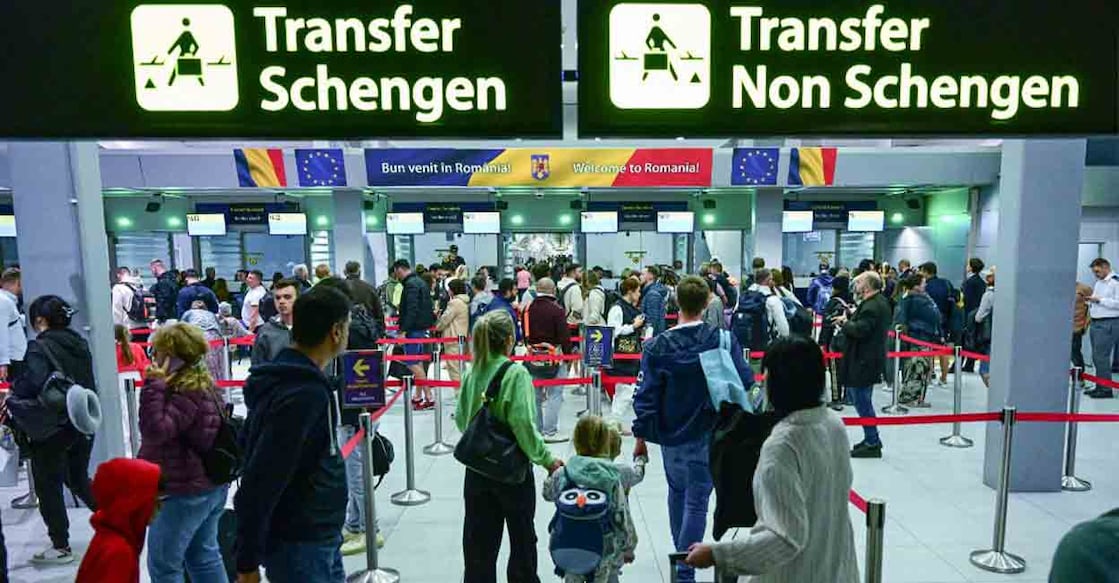Explained | What is the Schengen Area?

Mail This Article
Bulgaria and Romania have partially joined Europe’s vast Schengen Area of free movement, opening up travel by air and sea without border checks.
The Schengen rules will apply in both member states including on issuing Schengen visas and controls at the internal air and sea borders will be lifted.
Austria has opposed full membership, including land crossings, saying Romania and Bulgaria needed to do more to prevent irregular migration.
A unanimous decision on the lifting of checks on persons at the internal land borders is still expected to be taken by the European Council at a later date.
With the addition of Bulgaria and Romania, the Schengen zone will comprise 29 members — 25 of the 27 European Union member states as well as Switzerland, Norway, Iceland and Liechtenstein.
Romania’s government said Schengen rules would apply to four sea ports and 17 airports, with the country’s Otopeni airport near the capital Bucharest serving as the biggest hub for Schengen flights.
Schengen Area
• Originally, the concept of free movement was to enable the European working population to freely travel and settle in any EU State, but it fell short of abolishing border controls within the Union.
• It started as an inter-governmental project between five EU countries — France, Germany, Belgium, the Netherlands and Luxembourg — and has gradually expanded to become the largest free travel area in the world.
• Schengen is the name of a small village in Luxembourg, on the border with Germany and France, where the Schengen Agreement and the Schengen Convention were signed in 1985 and in 1990 respectively.
• The implementation of the Schengen Agreements started in 1995.
• The developments brought about by the Schengen Agreements have now been incorporated into the body of rules governing the European Union.
• The border-free Schengen Area guarantees free movement to more than 425 million EU citizens, along with non-EU nationals living in the EU or visiting the EU as tourists, exchange students or for business purposes (anyone legally present in the EU).
• Free movement of persons enables every EU citizen to travel, work and live in an EU country without special formalities.
• Schengen underpins this freedom by enabling citizens to move around the Schengen Area without being subject to border checks.
• Today, the Schengen Area encompasses most EU countries, except for Cyprus and Ireland.
• The Schengen provisions abolish checks at EU’s internal borders, while providing a single set of rules for controls at the external borders applicable to those who enter the Schengen area for a short period of time (up to 90 days).
• Any person, irrespective of their nationality, may cross the internal borders without being subjected to border checks. However, the competent national authorities can carry out police checks at internal borders and in border areas, provided that such checks are not equivalent to border checks.
• While having abolished their internal borders, Schengen countries have also tightened controls at their common external border on the basis of common Schengen rules to ensure the security of those living or travelling within the Schengen Area.
• The set of rules governing the Schengen Area is called Schengen Borders Code.
• Every day around 3.5 million people cross internal borders for work or study or to visit families and friends, and almost 1.7 million people reside in one Schengen country while working in another.
• Europeans make an estimated 1.25 billion journeys within the Schengen Area every year, which also greatly benefits the tourism and cultural sector.
• The Schengen Area brings significant economic benefits to all citizens and businesses in its participating states. It is designed to be the bedrock of the European Union and of the single market as a whole.
EU countries issuing Schengen visas:
• Austria
• Belgium
• Bulgaria
• Croatia
• Czech Republic
• Denmark
• Estonia
• Finland
• France
• Germany
• Greece
• Hungary
• Italy
• Latvia
• Lithuania
• Luxembourg
• Malta
• Netherlands
• Poland
• Portugal
• Romania
• Slovakia
• Slovenia
• Spain
• Sweden.
Non-EU countries issuing Schengen visas:
• Iceland
• Liechtenstein
• Norway
• Switzerland.
EU countries not issuing Schengen visas:
• Cyprus
• Ireland.




